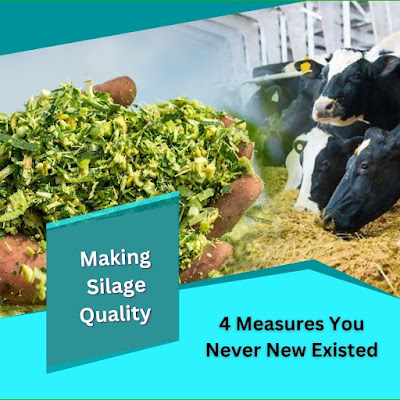Dry Corn Silage: Is it a Big Problem?
Numerous reports have told us that sometimes you get drier than usual corn silage; this can go on for years. Therefore, it is tough for us at Silage Agro to post a blog containing all the answers to your corn Silage for Cows-related questions.
Nutrient Analysis, dry matter, nitrate levels, analysis of other feedstuffs, your cow’s size, cow’s condition, environmental factors, and many more things can influence the amount of corn silage you require to feed. Therefore, silage Agro recommends that you consult your nutritionist or extension expert on your particular situation.
Is your dry corn silage a big issue?
Consider these things when feeding dryer than normal corn silage to your adorable cows. And if something like this happens to you, please don’t hesitate to order affordable Corn silage For Sale from us.
Dry Matter
Rainy days may keep you from harvesting corn silage at the correct time. Many corn silage bales will test and taste very dry to your cows. Some may even be at 50% dry matter. In addition, it can threaten some severe issues to fermentation and raise spoilage on the face of the bag, bale, or silage pile.
It can also allow molds on fodder. Therefore we give you a piece of solid advice to sample your corn silage and get a nutrition analysis on it. You should also analyze your bale for molds if any are present.
Protein or energy makeup
Dry corn silage might run low on protein. However, corn silage is primarily used for energy. Therefore, corn silage can present too much power for expecting cows, given that you are allowing your ruminants to eat without limits.
In most scenarios, it is least-cost to supplement some protein and limit-feed the silage to match energy needs. However, if your silage is dehydrated, cows can consume much more DM than corn silage at 35%. Therefore, it can create problems with overfeeding energy through a corn silage-based diet.
Ration palatability
If your corn silage is way more dry than usual, you might need to create adjustments to maintain a damp and acceptable diet for finishing rations; likewise, your cows won’t bother the extra dry percentage and feed on it.
For most diets, the simplest solution could be to add water to the total mixed rations. However, you can also use wet forms of co-products feeds such as wet distiller grains, wet corn gluten feed, or brewers grains to add moisture and nutrients.
Feeding plan
Offering ruminants hay-free-choice is an accepted practice in the Midwest. Utilizing the same hay-free-choice feeding method with corn silage can give you some pretty chunky smiling cows. The acceptability of corn silage is high. So your ruminants will eat approx. 41 to 45 kg of silage if you give your dairy friends a chance. In almost all cases, it’s overfeeding.
Therefore limit-feeding corn silage is the ideal feeding plan. But remember that your cow’s behavior will change, and it might bang your front door and ask for more because its stomach is empty. But you must resist as it is best for your cow’s health.



Comments
Post a Comment